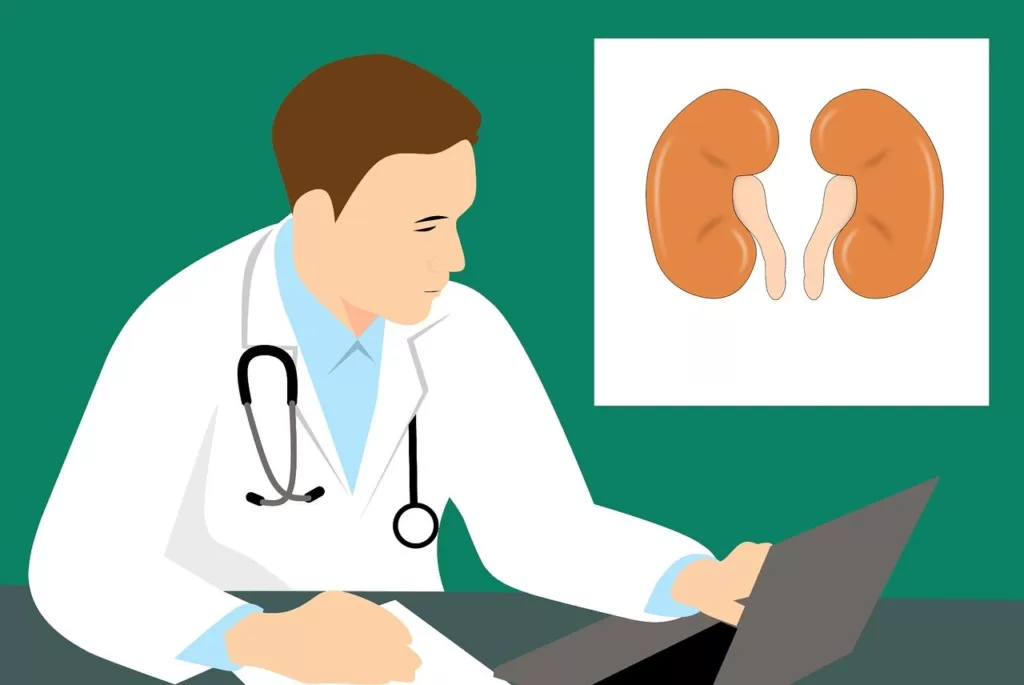- Dr. Anshul Bansal
MBBS, MS (Obstetrics & Gynaecology) FGO Gujrat Cancer research institute. Female cancer specialist
What is the main cause of cancer, before it we first will read about what is cancer?
Cancer is a complex group of diseases characterized by the uncontrolled growth and spread of abnormal cells in the body. These abnormal cells, known as cancer cells, divide and form tumors, which can invade nearby tissues and organs. If left untreated, cancer can eventually spread to other parts of the body through a process called metastasis.
Cancer can occur in any part of the body and can affect various organs and tissues. There are many different types of cancer, including breast cancer, lung cancer, prostate cancer, colorectal cancer, and leukemia, among others. Each type of cancer behaves differently and may require specific treatment approaches.
The development of cancer is usually a multi-step process involving genetic changes that result in the disruption of normal cell growth and division. These genetic changes can be inherited from parents or acquired throughout a person’s lifetime due to various factors such as exposure to carcinogens (substances that promote cancer), certain infections, lifestyle choices (such as tobacco and alcohol use), radiation exposure, and certain inherited gene mutations.

The signs and symptoms of cancer vary depending on the type and stage of the disease. Some common symptoms may include persistent fatigue, unexplained weight loss, pain, changes in the skin, persistent cough or hoarseness, and unusual bleeding or discharge. However, it’s important to note that these symptoms can also be caused by conditions other than cancer, so it’s essential to consult a healthcare professional for proper evaluation and diagnosis.
Treatment options for cancer depend on factors such as the type and stage of cancer, as well as the individual’s overall health. Common treatment modalities include surgery, radiation therapy, chemotherapy, immunotherapy, targeted therapy, and hormone therapy. In recent years, advances in cancer research and treatment have led to improved outcomes for many cancer patients.
It’s important to note that early detection through regular screenings and prompt medical intervention can significantly improve the chances of successful treatment and survival. Additionally, adopting a healthy lifestyle, including avoiding tobacco and excessive alcohol consumption, maintaining a balanced diet, engaging in regular physical activity, and protecting oneself from harmful exposures, can help reduce the risk of developing cancer.

What is the main cause of cancer?
The development of cancer is typically caused by a combination of factors, and it’s often difficult to pinpoint a single main cause. Cancer is a complex disease, and its causes can vary depending on the type of cancer and individual circumstances. Here are some factors that can contribute to the development of cancer:
Genetic Factors: Inherited gene mutations can increase the risk of developing certain types of cancer. These mutations can be passed down from parents and are responsible for a small percentage of cancer cases.
Environmental and Lifestyle Factors: Various environmental and lifestyle factors can increase the risk of cancer. These include:
Tobacco Use: Smoking or using tobacco products is one of the leading causes of cancer, particularly lung cancer. It is also linked to many other types of cancer, such as mouth, throat, esophageal, and bladder cancer.
Exposure to Carcinogens: Exposure to certain chemicals and substances in the environment, workplace, or through lifestyle choices can increase the risk of cancer. Examples include asbestos, benzene, formaldehyde, certain pesticides, and some industrial chemicals.
Diet: A poor diet that is high in processed and red meats, unhealthy fats, and low in fruits, vegetables, and fiber can contribute to the development of certain types of cancer.
Physical Inactivity: Lack of regular physical activity is associated with an increased risk of developing certain types of cancer, including breast, colon, and endometrial cancer.
Alcohol Consumption: Excessive alcohol consumption is a known risk factor for several types of cancer, including liver, mouth, throat, esophageal, and breast cancer.
Infectious Agents: Certain infections can increase the risk of cancer. For example, chronic infection with human papillomavirus (HPV) can lead to cervical, anal, and oropharyngeal cancer. Hepatitis B and C viruses can cause liver cancer, and Helicobacter pylori infection is associated with stomach cancer.
Radiation Exposure: Prolonged exposure to ionizing radiation, such as radiation therapy for cancer treatment or exposure to radiation from nuclear accidents, can increase the risk of cancer.
It’s important to note that while these factors can contribute to the development of cancer, having one or more risk factors does not necessarily mean a person will develop cancer. Additionally, some people may develop cancer without having any known risk factors. Cancer is a complex disease, and more research is needed to fully understand its causes and develop effective prevention strategies.

Types of Cancer
There are numerous types of cancer, and they can affect almost any part of the body. Here are some common types of cancer:
- Breast Cancer: This type of cancer develops in the breast tissue, commonly in the ducts or lobules. It affects both men and women but is more prevalent in women.
- Lung Cancer: Lung cancer originates in the lungs and is mainly caused by smoking, although it can occur in nonsmokers as well. It is the leading cause of cancer-related deaths worldwide.
- Prostate Cancer: Prostate cancer occurs in the prostate gland, a part of the male reproductive system. It is one of the most common cancers in men.
- Colorectal Cancer: Colorectal cancer affects the colon or rectum and usually begins as a growth called a polyp. It is highly treatable when detected early through screenings like colonoscopies.
- Melanoma: Melanoma is a type of skin cancer that begins in the pigment-producing cells (melanocytes) of the skin. It is often associated with exposure to ultraviolet (UV) radiation from the sun or tanning beds.
- Leukemia: Leukemia is a cancer of the blood cells and bone marrow. It affects the production of white blood cells and can be categorized into different types, such as acute lymphoblastic leukemia (ALL) and chronic lymphocytic leukemia (CLL).
- Lymphoma: Lymphoma refers to cancers that develop in the lymphatic system, which is part of the body’s immune system. There are two main types: Hodgkin lymphoma and non-Hodgkin lymphoma.
- Pancreatic Cancer: Pancreatic cancer affects the pancreas, an organ responsible for producing enzymes and hormones. It is often diagnosed at an advanced stage and has a lower survival rate.
- Ovarian Cancer: Ovarian cancer affects the ovaries, the female reproductive organs that produce eggs. It can be difficult to detect in the early stages, leading to a higher mortality rate.
- Bladder Cancer: Bladder cancer develops in the bladder, which stores urine. It is more common in older adults and often presents with symptoms like blood in the urine.
These are just a few examples of the many types of cancer that exist. Each type has its unique characteristics, treatment options, and prognosis. It’s important to consult with healthcare professionals for accurate diagnosis, treatment planning, and ongoing care.

What are 7 cancer signs?
While the signs and symptoms of cancer can vary depending on the type and stage of the disease, here are seven general warning signs that may indicate the presence of cancer:
- Unexplained Weight Loss: Significant and unexplained weight loss, especially when not associated with changes in diet or physical activity, can be a symptom of various types of cancer.
- Fatigue: Persistent and extreme fatigue that doesn’t improve with rest can be a symptom of cancer. It is often accompanied by other symptoms, such as weakness, shortness of breath, and lack of energy.
- Pain: Persistent or worsening pain in any part of the body may be a symptom of cancer. The pain may be localized or spread to other areas as the cancer progresses.
- Changes in the Skin: Changes in the skin, such as the appearance of new moles, sores that do not heal, or changes in the size, shape, or color of existing moles, can be signs of skin cancer or other types of cancer.
- Persistent Cough or Hoarseness: A persistent cough that lasts for several weeks, hoarseness, or a change in voice can be signs of lung cancer or cancers in the throat or larynx.
- Unusual Bleeding or Discharge: Unusual bleeding, such as blood in the urine, stool, or coughing up blood, can be a sign of various cancers. Abnormal vaginal bleeding, nipple discharge, or blood in the saliva should also be evaluated.
- Changes in Bowel or Bladder Habits: Persistent changes in bowel habits, such as diarrhea, constipation, or narrowing of the stool, as well as blood in the stool, can be indicative of colorectal or other digestive tract cancers. Changes in bladder habits, such as increased frequency or blood in the urine, may be signs of bladder or urinary tract cancer.
It’s important to note that these signs and symptoms can also be caused by conditions other than cancer. However, if you experience any persistent or concerning symptoms, it’s recommended to consult a healthcare professional for proper evaluation and diagnosis. Regular screenings and routine check-ups can also help detect cancer at an early stage, even before symptoms manifest.
When can cancer starts?
Cancer can potentially start at any point in a person’s life. The development of cancer is a complex process that typically involves multiple genetic and environmental factors over time. Some forms of cancer can develop early in life, even during childhood, while others are more commonly diagnosed in older adults.
Certain types of cancer are associated with specific age groups. For example, childhood cancers, such as leukemia and certain brain tumors, are more prevalent in younger individuals. On the other hand, certain types of cancer, such as prostate, breast, and colorectal cancer, tend to occur more frequently in older adults.
It’s important to note that cancer is not solely determined by age but can be influenced by a variety of factors. These include genetic predisposition, lifestyle choices, exposure to carcinogens, underlying medical conditions, and certain infections.
Regular screenings and routine check-ups are crucial for detecting cancer early, even before symptoms manifest. Early detection can significantly improve treatment outcomes and increase the chances of successful treatment. If you have any concerns about cancer or notice any unusual symptoms, it’s important to consult with a healthcare professional for proper evaluation and guidance.






